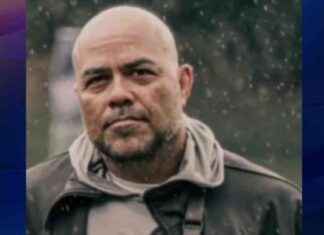The war launched against Ukraine by Vladimir Putin’s Russia is in its fifth month, taking lives and devastating the country, with signs of continuing for a long time. In this harsh scenario, an international conference organized by Switzerland and Ukraine, attended by representatives of 40 countries and international organizations, is preparing to design the reconstruction.
With estimates according to the current degree of destruction, the cost will amount to 750,000 million dollars (almost 720,000 million euros), according to the Ukrainian Prime Minister, Denis Chmihal, who attended the conference in person, which began yesterday in the Swiss city of Lugano and ends today.
Lugano is not a donor conference like the one held in May in Warsaw, nor is it the international reconstruction conference promised last week by the G-7, the club of the seven most industrialized democracies. This is an appointment planned since before the war to channel reforms in Ukraine which, in view of the situation, has reoriented its objective, without abandoning the goal of reforming the country and ending corruption, a subject in which that Ukraine has already taken positive steps.
There is agreement among Western allies that Ukraine will need a Marshall plan similar to the one launched by the United States to rebuild Western Europe from the ruins of World War II. Several European leaders, including German Chancellor Olaf Scholz, use the expression “Marshall plan” for this process.
“The reconstruction of Ukraine is not a local project, it is not the project of a single nation, but a common task of the entire democratic world and the most important contribution to peace in the world,” Ukrainian President Volodymyr Zelensky defended by videoconference. . According to the Ukrainian Ministry of Economy and the Kyiv School of Economics (KSE), the value of infrastructure damage caused by the Russian invaders since the beginning of their attack on February 24 is around 100,000 million euros.
The goal must be “to rebuild Ukraine not as it was but as the young people want it to be”, proposed Ursula von der Leyen, president of the European Commission, who evoked the story of Roman Ratushni, a young man who spoke out in favor of rapprochement with European Union on Kyiv’s Maidan Square in 2014. He would have been 25 today, but Ratushni, an activist and journalist, died on the battlefield in June.
The president of the European Commission applauded the new anti-corruption laws and the administrative reform for the digitization and decentralization of the State, which have allowed the country to continue to function despite the war, but stressed that “courageous reforms” will continue to be needed for the country to come out of the war “greener, stronger and more modern”.
Claiming its history of working for the modernization of Ukraine and the country’s desire to join the EU, Brussels offered to create a platform to monitor investment needs, coordinate actions, channel resources and support the reform agenda that unites the multitude of actors involved in the process. “The path to a stronger Ukraine and the path to EU integration are the same,” Von der Leyen summed up.
Regarding the funds, Ukrainian Prime Minister Chmihal argued that a key source “should be the assets confiscated from Russia and Russian oligarchs”, which he estimated at “between 300,000 and 500,000 million dollars”. Other sources of financing would be, he added, soft loans from international financial organizations and friendly countries, private sector investments and the Ukrainian national budget itself.
For now, the European Investment Bank (EIB) should propose a fund for Ukraine of up to 100,000 million euros. On Sunday, the United Kingdom indicated that, at Zelensky’s request, it will focus above all on the reconstruction of Kyiv and its region. London could host in 2023 the reconstruction conference sponsored by the G-7, in which the US president, Joe Biden, has great interest.
Some of the work to rebuild homes, factories, roads, schools and other infrastructure has already started in liberated areas. The Swiss president, Ignazio Cassis, host of the conference together with his Ukrainian counterpart, maintained that reconstruction and reforms “are not incompatible with each other, but reinforce each other”, and called for continuing the fight against corruption also during the war . Lugano is the fifth in a series of Ukraine reform conferences, four of them held in peacetime in the UK, Canada, Denmark and Lithuania.








